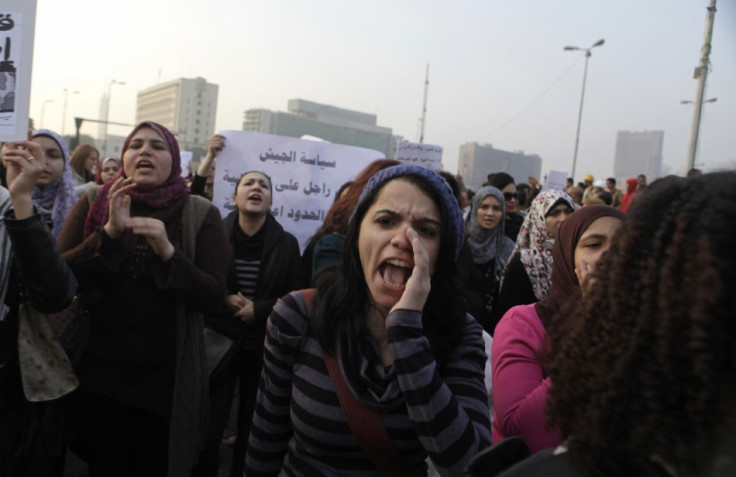Egypt: Women raped with impunity by security forces alleges damning French report

Egyptian police and military have been accused of widespread sexual violence and torture of political prisoners, students, children and homosexuals in a damning report by a French NGO.
FIDH reports a surge in sexual violence against detainees since the military coup that ousted former president Mohammed Morsi in July 2013, and includes harrowing accounts of rape and sexual assault by military personnel, police and state security on demonstrators and political activists.
It also documents a massive crackdown on homosexuals and the lesbian, gay, bisexual and transgender community, including raids on bath-houses that have seen patrons arrested for "debauchery" and "sexual indecency", jailed, humiliated and often assaulted by police.
The report includes dozens of first-hand accounts by victims as well as interviews with NGO workers and lawyers and describes a "culture of impunity" under newly elected president Abdel Fattah Al-Sisi that allows the abuse to take place.
"Sexual violence is carried out indiscriminately at checkpoints, in the metro, at the entrance to universities, on campuses, in hospitals, at the entrance to courts and detention centres during security checks, in sports facilities and private homes during targeted raids," it says.
My life is ruined. I'm afraid of my son, my husband and even my father
As well as first hand accounts, the report points to videos shared on Egyptian social media as recently as 2014 which show security agents in plain clothes on the Al Azhar University campus in Cairo running after women demonstrators and groping them.
But many of the accounts told to FIDH by former prisoners go far further.
"In the van they insulted me and beat me so much that I could no longer stand up. Two soldiers started to sexually assault me. There was one who was ashamed and who asked them to stop. They told him to keep quiet," one victim told the NGO after her attack in 2013.
"My life is ruined. I'm afraid of my son, my husband and even my father."
Another, a student arrested at an anti-army protest in November 2013, said: "They threw me into a cell in the basement. There were two men in there with erections wearing only underwear who threw themselves at me. I cried out so much they ended up letting me out."
The sexual assault of activists, political dissidents and demonstrators has long been an issue in Egypt and reared its ugly head again soon after the ousting of former dictator Hosni Mubarak in 2011. A number of high-profile assaults against demonstrators in Tahrir Square led to outcry and mass marches of women through the streets to call for an end to sexual violence.
General Sisi has been public about his claims to represent Egyptian women, contrasting his own view with that of the Muslim Brotherhood, which is portrayed as backwards in its attitudes to women compared with the new Egyptian regime. A Cairo court recently sentenced seven men to between 20 years and life in relation to sex attacks during a pro-Sisi rally in 2014.
But despite the rhetoric, FIDH says that the abuse of women by police and security services is rampant and it further alleges that both the Ministry of the Interior and the Egyptian army are aware of the abuse and do nothing to prevent it.
"The Egyptian government must immediately put an end to these crimes, committed by actors under their direct authority. They must ensure serious investigations into all allegations and the prosecution and punishment of those responsible in accordance with international standards," said Amina Bouayach, FIDH secretary general.
Al-Sisi has been accused of presiding over a massive crackdown on civil liberties in Egypt since seizing power in July 2013 from the Muslim Brotherhood and winning a subsequent election in which the party was barred from standing. Human rights groups have recently warned that the situation in Egypt under al-Sisi is worse than under Mubarak.
© Copyright IBTimes 2024. All rights reserved.






